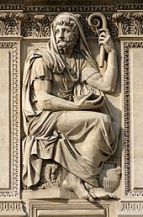“Neither snow nor rain nor heat nor gloom of night stays these couriers from the swift completion of their appointed rounds.”
Remember that phrase that everyone thinks is the motto or slogan of the United States Postal Service? It actually describes an ancient Persian system of mounted couriers used to speed messages throughout their vast empire. Yes, the Persians made use of a highly efficient relay-style delivery system more than two millennia before the Pony Express appeared in the American Old West.
 Treasures of Dodrazeb: The Origin Key is an historical sword-and-science fantasy adventure. Click here to read an excerpt.
Treasures of Dodrazeb: The Origin Key is an historical sword-and-science fantasy adventure. Click here to read an excerpt.
An invading Persian warrior becomes obsessed with Dodrazeb, a strange isolated kingdom that possesses incredible technology, including methods for communicating over vast distances that are familiar in modern times. Ancient Dodrazeb’s puzzling choice to hide from the world pulls him deeper into layers of mysteries as its sly princess does everything she can to expel the invaders. What are the Dodrazebbians so desperate to keep hidden?
Get your copy on Amazon.com! Available in both e-book and paperback.
 Even though it set speed records for mail delivery and became a well-loved and thoroughly romanticized piece of historical lore, the Pony Express was only in operation for 19 months. In that brief time, it failed to secure a lucrative government mail contract and never turned a profit. Between hostile Native Americans and the completion of the transcontinental telegraph system, the Pony Express was driven out of business and became obsolete in October of 1861.
Even though it set speed records for mail delivery and became a well-loved and thoroughly romanticized piece of historical lore, the Pony Express was only in operation for 19 months. In that brief time, it failed to secure a lucrative government mail contract and never turned a profit. Between hostile Native Americans and the completion of the transcontinental telegraph system, the Pony Express was driven out of business and became obsolete in October of 1861.
 So, just how did that famous phrase come to be associated with the U.S. Postal Service? The unofficial motto is inscribed in granite over the entrance of the James A. Farley building at Eighth Avenue and 33rd Street in New York City, right in the middle of Manhattan. Back in the early twentieth century, the architectural firm of McKim, Mead & White was chosen to design the New York General Post Office building. Construction began in 1912 and it was opened to the public in 1914. The building was doubled in size in 1934 and its name was changed to honor Postmaster General James A. Farley.
So, just how did that famous phrase come to be associated with the U.S. Postal Service? The unofficial motto is inscribed in granite over the entrance of the James A. Farley building at Eighth Avenue and 33rd Street in New York City, right in the middle of Manhattan. Back in the early twentieth century, the architectural firm of McKim, Mead & White was chosen to design the New York General Post Office building. Construction began in 1912 and it was opened to the public in 1914. The building was doubled in size in 1934 and its name was changed to honor Postmaster General James A. Farley.
 William Mitchell Kendall was one of the architects. Kendall, who frequently read classic Greek literature for pleasure, had grown up in a wealthy household with a father who was a scholar of the classics. He selected a passage (translated by Professor George Herbert Palmer of Harvard University) from book 8, paragraph 98, of The Persian Wars by the ancient Greek historian Herodotus (c 484–c 425 BCE). The Post Office Department agreed that Kendall’s slight modification of the original translation was suitable for the building, and approved it.
William Mitchell Kendall was one of the architects. Kendall, who frequently read classic Greek literature for pleasure, had grown up in a wealthy household with a father who was a scholar of the classics. He selected a passage (translated by Professor George Herbert Palmer of Harvard University) from book 8, paragraph 98, of The Persian Wars by the ancient Greek historian Herodotus (c 484–c 425 BCE). The Post Office Department agreed that Kendall’s slight modification of the original translation was suitable for the building, and approved it.
Herodotus: “It is said that as many days as there are in the whole journey, so many are the men and horses that stand along the road, each horse and man at the interval of a day’s journey; and these are stayed neither by snow nor rain nor heat nor darkness from accomplishing their appointed course with all speed.”
“The method of carrying messages Herodotus describes was a Persian invention and enabled the messengers to travel swiftly. In this fashion King Xerxes sent a message home to Persia that the Greeks had destroyed his fleet off Salamis in 480 BCE.”—George Stimpson, A Book About a Thousand Things.
So, that famous, unofficial motto carved in stone on a famous building in New York City describes ancient Persian couriers. Think about that the next time your mail is delayed due to inclement weather.
Sources
https://uspsblog.com/how-is-new-york-city-related-to-famous-postal-quote/
http://www.bartleby.com/73/1439.html
https://www.infoplease.com/askeds/post-office-motto
https://about.usps.com/who-we-are/postal-history/mission-motto.pdf
http://www.history.com/news/history-lists/10-things-you-may-not-know-about-the-pony-express
